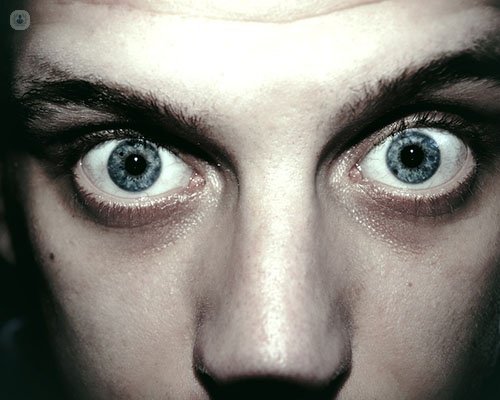Hysterical disease
Written by:"Hysteria" (from hystera = uterus) is one of the oldest diseases of medicine. Greek doctors, several centuries before Christ, they thought it was due to the dryness of the uterus, resulting in turn from fatigue and sexual inactivity. The uterus looked like deprived of fluids needed to remain in its natural state. Excessively dry and light weight, the reproductive organ by the body would move with some violence in search of fluids that are missing, and it is colliding with the rest of viscera symptoms of the disease would occur. Both seizures similar to epilepsy, as all kinds of discomfort, are due to these collisions between the matrix and other parts of the body. According to these ideas, doctors suggested all sorts of treatments to retain the uterus in its natural place, being one of the most consistent indication of marriage and sexual activity. In essence, this understanding of the causes, symptoms and treatments of hysteria remained in antiquity and the Middle Ages.

In the seventeenth century, the Englishman Thomas Sydenham included hysteria between nerve disease, so the body would supposedly affected the brain, not the uterus. Hysteria swelled the rank of mental illness. Sydenham noted that not only the manifestations of hysteria were very numerous (as Galen had said centuries before) but often mimicked other diseases. In life, few heeded him. But since then, a succession of contributions were enriching and adding nuances. Bernheim, for example, defended the mechanism of auto-suggestion in the onset of hysterical symptoms.
In the late nineteenth, on the other hand, a process of classification of hysteria based on its different forms of manifestation began. These subtypes would eventually become, over time, fully independent diseases and scattered chapters of psychiatric disorders (dissociative disorder, conversion disorder, histrionic personality, psychogenic pain, etc).
That process of fragmentation of hysteria was added in the last decades of the twentieth century, the gradual tendency to stop using the word "hysteria", having acquired a pejorative connotation the term. Political correctness, which requires the elimination of vocabulary terms considered offensive to some sector of the population, also took its toll on Psychiatry.
Now the hysteria has gone. It has disappeared as the name - hysteria - an ancient disease, and as an adjective to refer to relate with the same pathologies (hysterical neurosis, hysterical personality, hysterical bolus ...). And yet there is hysteria. Few psychiatrists will put in doubt. I am of the opinion that the various pathologies that has finished ripping are ultimately mere manifestations of a single disease. And what are the main symptoms of this disease? The review of the literature and clinical experience suggest the following:
- The most common symptom of hysteria, which is present in almost all cases, is headache. It is severe pain, with large fluctuations in intensity, which sometimes extends to parts of the face. In some patients the hysterical headache is localized at a particular point, and is perceived as if a nail had been introduced at that point. Unlike other headaches, simply contact the scalp by hand, or with the comb, can exacerbate pain intensity.
- Headache almost always accompanied by other pain abdominal pain in extremities, back, joints, painful intercourse (dyspareunia), painful menstruation, etc.. Sensations related to pain, such as pins and needles, electric shock or diffuse feelings of discomfort, are equally common (up to 80% according to some work). Often these sensations not have a fixed location and moving, the more often upwardly, from bottom to top.
- In most cases (but not all) hysteria with alterations of sexuality: lack of desire and / or lack of pleasure.
- Digestive symptoms also feature prominently in hysteria place, being the most frequent nausea. Vomiting, loss of appetite, difficulty swallowing, or other food intolerances, also they accompany hysteria.
- The moods are very changeable, swinging easily between crying, nervousness, anger and joy (especially during periods when the physical symptoms disappear). Hysterical people, very often, are loquacious and are easy to relate. His speech, however, tend to be wordy, interspersing the problems in their personal relationships with their emotional states and physical symptoms.
- Also frequent are dizziness and the feeling of instability, forcing patients to limit its scope. They do depend on other people to be able to move or to perform household chores. In severe cases fainting or sensation of blindness, blurred vision and loss of consciousness imminent, requiring rest and postpone all activities occur.
- Symptoms such as paralysis (inability to move a body part) and hoarseness, or transient mutism, now affect less than half of cases. However, fatigue and lack of strength (especially in hands), are still relatively frequent.
- One of the most interesting aspects in the history of hysteria is the virtual disappearance of seizures throughout the twentieth century. This is different forms of generalized muscle twitches, which often resembled epileptic crisis called grand mal. Many times, especially during the Middle Ages, the crisis in a state of possession, devilish (called lunatics) or were attributed divine.
- Also worth recalling the memory loss, not to be confused with dementia, and difficult, even more, the normal daily functioning.



